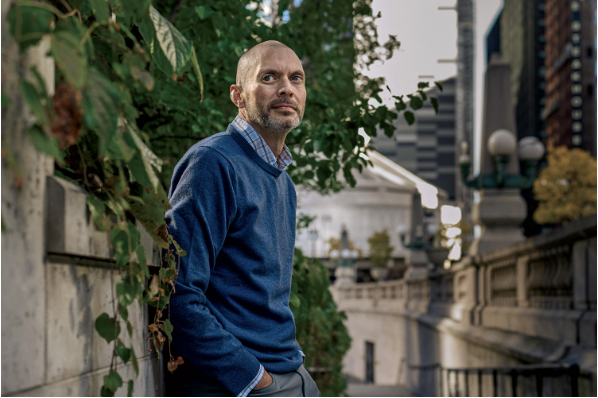Opinion
By Doug Schenkelberg
In Chicago this week, temperatures have dipped down to dangerously cold levels. When the weather reaches negative degrees and there is bone-chilling wind and snow, prolonged exposure can threaten health regardless of how many layers of clothing a person is able to put on. But it is particularly unsafe for the men, women and children experiencing homelessness on Chicago’s streets.
With over 35,000 individuals in Illinois using the state-funded shelter system in 2015, we know that this threat is widespread.
Every year, people ask us at the Chicago Coalition for the Homeless how they can help homeless individuals they encounter.
I always say, if you are asked for help by someone on the street, you should not hesitate to give them money, food, blankets, etc., if you have the means and the desire. We do not think there is any downside to helping people in all of these ways.
But more importantly, make sure that whatever interaction you have is positive and respectful. If you can’t or don’t want to give anything, you can still make eye contact, smile and wish a person well. The key is to treat each person with the dignity and respect you would hope for if you were in that situation.
It is also important to speak up if you hear someone say something dismissive or derogatory about people who are homeless. Remind them that homelessness can hit anyone and those without homes are individuals with backgrounds and stories and dreams and ambitions. They need the same love and support we all do in order to make it through each day.
Beyond immediate support, there are other ways to give that can have a lasting impact. Find organizations that do direct outreach to those experiencing homelessness on Chicago’s streets and provide permanent housing options. You can find resources here that identify nonprofits active in this arena in Chicago.
Finally, keep in mind that homelessness does not just exist when it is cold. It is an issue 365 days a year. People do not live on the street because that is where they prefer to be. They live there because they do not have access to the permanent affordable housing they need. At a time when we should be investing more in both the housing and the supportive services—mental health services, job training, health care—people need to reach their potential, our state is failing to meet its current obligations.
Decision-makers need to know that this issue matters to you, that our state and our city should strive to be the best version of ourselves and adequately fund the programs those experiencing homelessness need to not only survive but thrive.
Specifically, with our state budget in disarray, the governor needs to hear from constituents that he needs to adequately fund homeless programs. We urge you to call him at 217-782-0244 and tell him to make addressing homelessness a priority.
Any and all these actions can make a difference. Let’s work together this holiday season and beyond to make homelessness a thing of the past.
Doug Schenkelberg is executive director of the Chicago Coalition for the Homeless, which advocates and organizes to prevent and end homelessness.






